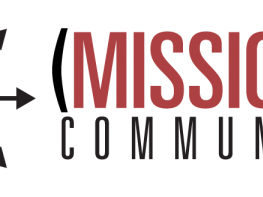Tony Jones is pushing back this week on my argument for good theological conversation “through labeling.” We’ve had “a thing goin on” here back and forth on labeling and mislabeling: the validity of the process, what we’re doing in Prodigal Christianity, and how we supposedly have labeled him.
By “labeling,” I’m not meaning what Tony means when he uses the word pejoratively in this post and this post concerning our book Prodigal Christianity (I’m playing on his use of the word). I’m arguing that the process of parsing (dividing up parts) theological traditions is important work because it enables us to understand how trajectories work, where they go and how they fit so that we can then analyze what are each position’s strengths and weaknesses. I don’t see this as antagonistic work. I see this as historical discernment. If we don’t do this, I contend our positions will be inherently arbitrary, ahistorical and in essence defended for personal reasons. Not based within a historical conversation, such articulations inevitably become individualist and antagonistic (and typically American).
Tony says we’re pigeon holing him as mainline protestant in the book Prodigal Christianity. Are we really? He is complaining about one paragraph in the book in particular. It is found in the introduction on page xxiii. We say the following as part of outlining how we came to write this book and our history that led up to it.
On the one hand, we are less than satisfied with what the “new kind of Christianity” has become. Brian McLaren, Doug Pagitt, Tony Jones, and others have helped us ask important questions and contributed greatly to creating a generous and compassionate Christianity, and to them we remain grateful friends. But their answers have often lacked substance on which we could live, and what goes by the name of “the emerging church” now appears to have settled into another version of mainline Christianity.
I have four points to make in answer to Tony’s objections to the paragraph.
1.) This is only one of two places in the whole book that mentions “mainline” (protestant) Christianity. We are merely explaining how we arrived at writing this book. We are making an observation that Emerging church appears to have settled in the mainline protestant church. This is not however the argument of the book. It’s a minor piece of background biographical information explaining how we came to write the book. We DO NOT assert in the disputed paragraph that the three names – Brian McLaren, Doug Pagitt and Tony Jones – are mainline protestant theologically. We said that the emerging church as a whole seemed to be drifting in that direction.
I did a word search over the entire Prodigal Christianity manuscript, and could only find one other place where we use the word “mainline” and it is on the same page and it is not used to refer to any names. This paragraph merely articulates a sentiment that we were feeling that the Emerging movement as a whole has migrated towards protestant mainline categories. From this point on the book is singularly focused on interacting with the various Emerging Church and Neo-Reformed voices as they helped us and where we felt they needed to be pushed further. This is the only “labeling” done int he book and it is done author by author.
2.) Having said all that, is the statement in itself fair? There are legitimate reasons for the perception that emerging church was (and is) drifting from its original location within the evangelical church towards a more mainline protestant presence. It isn’t at all essential to the story told in Prodigal Christianity. Nevertheless, one can see some tendencies, eh? Brian McLaren now spends most of his time within mainline contexts and this probably lends creedance to this impression. Brian’s book New Kind of Christianity is in many ways classic revised mainline protestant theology complete with the Hellenization hypothesis. A quick perusal of emergent blogs reveals positions on Christology, soteriology, eschatology, and categories for church and culture that come right out of the protestant mainline playbook, even if in revised form for postmodern developments (at Garrett they called this revised protestant liberalism and had no problems being proud of it.). The kind of generic inclusivity that Emergent groups constantly talk about itself has affinities with protestant mainline history and is another reason for the impression that Emergent has gone protestant liberal. Again I’m not at war with the protestant mainline tradition. I’m an appreciator of it. But there are reasons for the impression that Emergent Christianity has settled within the mainline protestant church. But I won’t spend the hours of time it would take to do a study and link to all the blogs and writings. I’ll leave that up to each reader to make up his own mind. It’s not an argument central to the book. I’m just trying to show that the “impression” is not without merit.
3.) Tony Jones may or may not be a protestant liberal. But it is inconsequential to the book Prodigal Christianity. We never said he is. Yes, there is an implied guilt by association with Emergent. So I think Tony, if he is worried about it, should take this opportunity to clarify again all the reasons why he is not protestant mainline if he thinks it’s important. Write a post about it. If not let it go. But it’s simply not an issue in the book.
If Tony wants to clarify his theological status as “Not Mainline,” I offer some of the following positions he might clear up for those confused about him. He has for instance been bold about arguing for the physical resurrection of Jesus (this isn’t bold within my own evangelical context). He appears to be chastising certain liberal protestants when he does this. So he differentiates himself from protestant mainline theology in this way. But what work does the resurrection do in his eschatology? Is Jesus ascended Lord at the right hand ruling over the world? What is the link between the physical bodily resurrection of Jesus to soteriology? Tony argues for the importance of the cross and the atonement in ways which I appreciate and even agree with? But sometimes it seems ‘Girardian‘ in a way that makes Tony’s sometimes Chalcedonian Christology irrelevant to his soteriology. This is confusing. He seems to distance himself (see for instance here) from the culmination of all history in Christ’s Second Coming (1 Cor 15:25) in ways which leaves the future open (see for instance this post). I would argue eschatology is a defining issue for protestant liberalism versus Anabaptist, Reformed and evangelical theology. And so this move by him could be construed as protestant mainline. It would help to clarify here. His reliance on Moltmann, especially the certain parts of Moltmann which over the years has become associated with liberation theology, have been most comfortable within protestant mainline theology. This may give people more reason to lazily categorize him as protestant liberal. And lastly, something he is always talking about, the way he frames church/culture relation, the moral engagment process in the LGBTQ sexual relations issue is classically protestant mainline. Perhaps he could outline how he is different from protestant mainline in this regard? All of these positions mentioned above may be why some people still have the overall impression he is still protestant “liberal” despite his many protestations and scolding’s of mainline Protestantism. I don’t have time to do a Ph.D. dissertation on his theology, but if I did, I might propose that Tony’s theological position is that Tony wants to be “his own man,” picking and choosing his theological positions with no commitments to a lived tradition. In other words, by definition Tony refuses to be defined by any tradition. So it makes sense that both a.) people eyeball a few of his positions and see him as protestant mainline and b.) Tony is outraged that anyone would see him as anything. I see no point in getting into an argument about whether he is or not. I’m fine either way.
4.) We did testify in the disputed paragraph about Brian, Doug, Tony “and many others” that “their answers have often lacked substance on which we could live.” There was I think some objections here from Tony and Doug Pagitt (on his radio show) asking us what we meant by those words. We answer this question in very precise terms throughout the book. We tell stories in each chapter about how the answers we received from various figures in the Emerging church (as well as the Neo-Reformed church) left us lacking for direction in on the ground Kingdom engagement. In each chapter we quote authors, and talk about what we learned and where it lacked, where we needed something more. We deal specifically with writings of people like Brian McLaren, Tony Jones, Rob Bell, Jim Wallis, as well as Justin Taylor, John Piper, Tim Keller, Kevin DeYoung and on and on. We get very specific with actual stories. I don’t know how authors could ask for much more? To me this is what it means to have theological conversation and dialogue. This is the important work of theology that I think the evangelical church and the church at large is in need of. We hope we have done it generously and with love.
In summary, Prodigal Christianity is a detailed precise engagement with the two most dominant movements of the last 10-15 years in evangelicalism among the 35 and under aged group. As we have “labeled” them, they are the Emergent movement and the Neo-Reformed movement. The book is not about whether “Emergent is protestant liberal” or not. Instead we deal directly with the answers to ministry problems as given to us via both Emergent and Neo-Reformed pushing for new ways of contextual engagement. Some say these are “labels” (like Tony). But for us they are points of reference for significant dialogue and theological discernment. Everyone uses points of reference (Tony once called us the “Hauerwasian Mafia” as a helpful label at the time). We have sought to do it with respect and without antagonism. In Prodigal Christianity, we’re committed to this kind of work, doing it generously, concretely, organically out of the everyday life of church. We believe it is vital to the future of the church in N. America at this time. From here on, I will let the book speak for itself. Thanks Tony for pushing on us!








Missio Alliance Comment Policy
The Missio Alliance Writing Collectives exist as a ministry of writing to resource theological practitioners for mission. From our Leading Voices to our regular Writing Team and those invited to publish with us as Community Voices, we are creating a space for thoughtful engagement of critical issues and questions facing the North American Church in God’s mission. This sort of thoughtful engagement is something that we seek to engender not only in our publishing, but in conversations that unfold as a result in the comment section of our articles.
Unfortunately, because of the relational distance introduced by online communication, “thoughtful engagement” and “comment sections” seldom go hand in hand. At the same time, censorship of comments by those who disagree with points made by authors, whose anger or limited perspective taints their words, or who simply feel the need to express their own opinion on a topic without any meaningful engagement with the article or comment in question can mask an important window into the true state of Christian discourse. As such, Missio Alliance sets forth the following suggestions for those who wish to engage in conversation around our writing:
1. Seek to understand the author’s intent.
If you disagree with something the an author said, consider framing your response as, “I hear you as saying _________. Am I understanding you correctly? If so, here’s why I disagree. _____________.
2. Seek to make your own voice heard.
We deeply desire and value the voice and perspective of our readers. However you may react to an article we publish or a fellow commenter, we encourage you to set forth that reaction is the most constructive way possible. Use your voice and perspective to move conversation forward rather than shut it down.
3. Share your story.
One of our favorite tenants is that “an enemy is someone whose story we haven’t heard.” Very often disagreements and rants are the result of people talking past rather than to one another. Everyone’s perspective is intimately bound up with their own stories – their contexts and experiences. We encourage you to couch your comments in whatever aspect of your own story might help others understand where you are coming from.
In view of those suggestions for shaping conversation on our site and in an effort to curate a hospitable space of open conversation, Missio Alliance may delete comments and/or ban users who show no regard for constructive engagement, especially those whose comments are easily construed as trolling, threatening, or abusive.